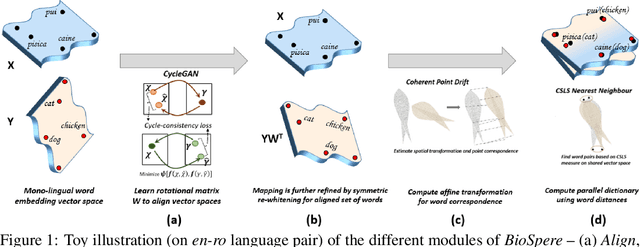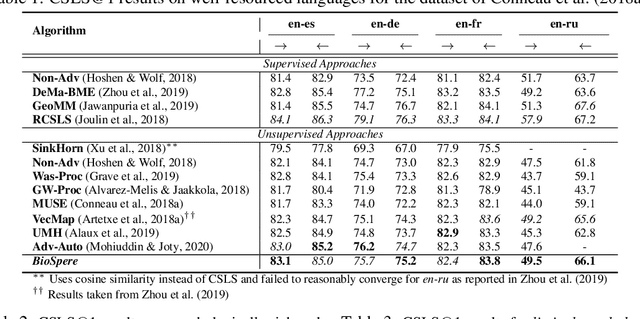Unsupervised Word Translation Pairing using Refinement based Point Set Registration
Paper and Code
Nov 26, 2020



Cross-lingual alignment of word embeddings play an important role in knowledge transfer across languages, for improving machine translation and other multi-lingual applications. Current unsupervised approaches rely on similarities in geometric structure of word embedding spaces across languages, to learn structure-preserving linear transformations using adversarial networks and refinement strategies. However, such techniques, in practice, tend to suffer from instability and convergence issues, requiring tedious fine-tuning for precise parameter setting. This paper proposes BioSpere, a novel framework for unsupervised mapping of bi-lingual word embeddings onto a shared vector space, by combining adversarial initialization and refinement procedure with point set registration algorithm used in image processing. We show that our framework alleviates the shortcomings of existing methodologies, and is relatively invariant to variable adversarial learning performance, depicting robustness in terms of parameter choices and training losses. Experimental evaluation on parallel dictionary induction task demonstrates state-of-the-art results for our framework on diverse language pairs.
 Add to Chrome
Add to Chrome Add to Firefox
Add to Firefox Add to Edge
Add to Edge